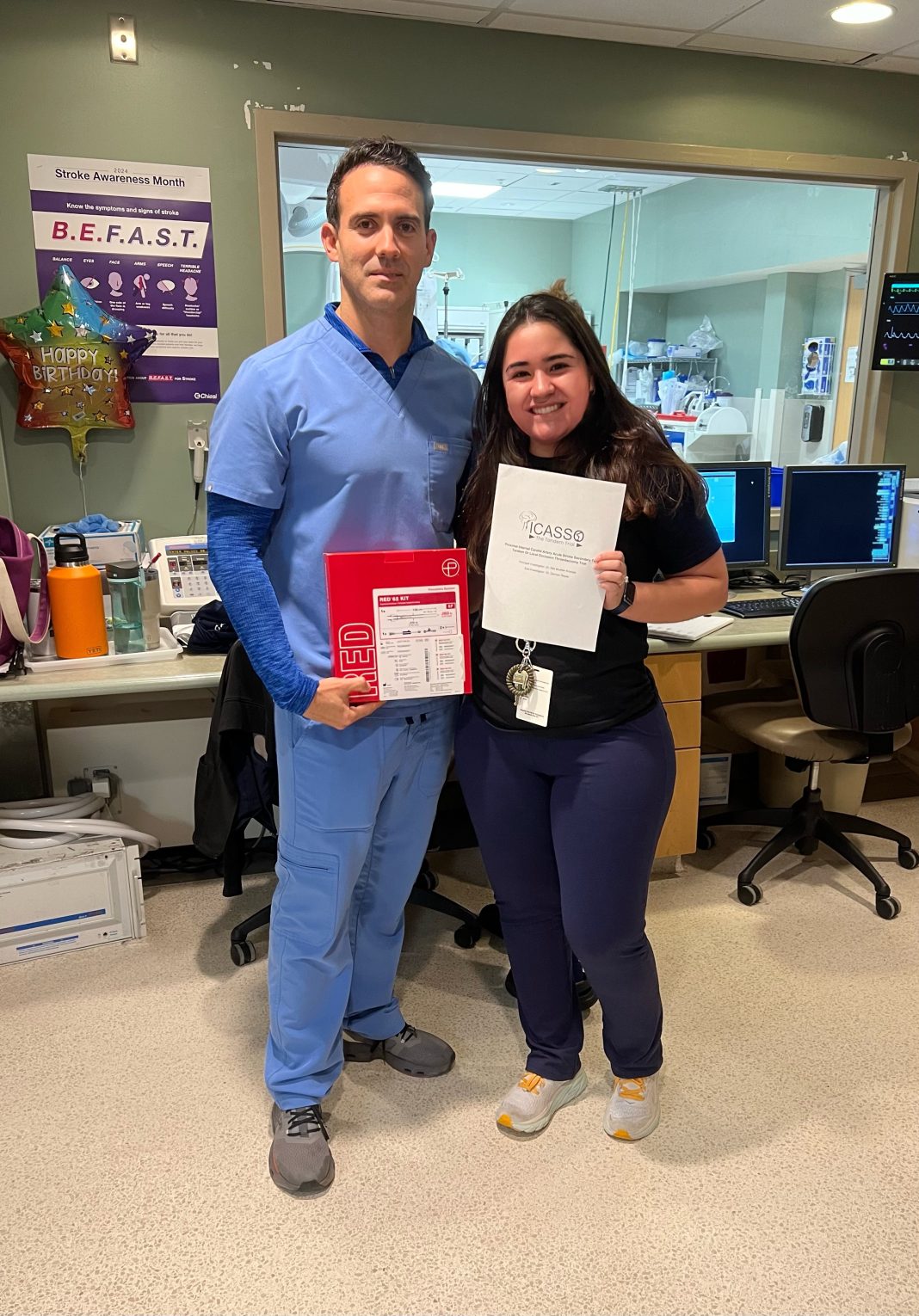Delray Medical is the first hospital in South Florida to enroll a patient in the PICASSO trial. The trial, which is in the critical third phase, is aimed at improving management for patients with tandem occlusions. This achievement is thanks to interventional neurologists Drs. Nils Mueller-Kronast and Dennys Reyes at Delray Medical Center, who are committed to improving stroke care through innovative research.
The enrollment of the first South Florida patient at Delray Medical Center is a critical step forward for the region’s involvement in this important study. The findings from the PICASSO Trial have the potential to significantly impact how stroke patients with tandem occlusions are treated, providing clearer guidance for physicians and better outcomes for patients.
“Not only are we one of only four Comprehensive Stroke Centers in Palm Beach County, but we are one of the leaders in the area that’s helping advance stroke care, something that we are extremely proud of,” said Delray Medical Center CEO, Heather Havericak. “We are giving our patients the best chance at a quality outcome, which is always our number one priority.”
Tandem occlusions occur when a stroke in the brain is accompanied by a narrowing or blockage in the neck artery, limiting blood flow to critical areas. The PICASSO Trial, which has been enrolling patients across the country, is designed to determine the most effective way to treat this condition. The trial compares two distinct treatment approaches: stenting the artery to keep it open or performing angioplasty, a minimally invasive procedure that uses a balloon to restore blood flow.
The PICASSO National Steering Committee praised the team at Delray Medical Center for their dedication to advancing stroke care. “Dr. Mueller-Kronast and Dr. Reyes have shown outstanding commitment to the field, and we are excited that Delray Medical Center is the first in South Florida to enroll a patient in this important study.”
